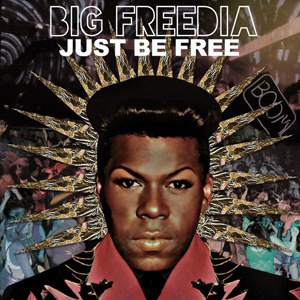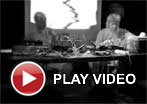Big Freedia, "Just Be Free"
 As elements of New Orleans Bounce music has been slowly drifting outside of its largely southern borders, Big Freedia, also known as Freddie Ross, has become the unofficial ambassador for the genre, making various high profile TV appearances and rather memorable live performances.  Just Be Free is his first true full-length album, and has the polish that could gain new fans, but never strays far from his roots and manages to stay undeniably fun.
As elements of New Orleans Bounce music has been slowly drifting outside of its largely southern borders, Big Freedia, also known as Freddie Ross, has become the unofficial ambassador for the genre, making various high profile TV appearances and rather memorable live performances.  Just Be Free is his first true full-length album, and has the polish that could gain new fans, but never strays far from his roots and manages to stay undeniably fun.
The bounce music scene is an insular one to say the least.Largely centered in New Orleans, performers stick to the same sampled loops ("Drag Rap" by The Showboys), a repetitive, shouting vocal style based heavily in repetition and delay, and a lyrical focus on ass shaking.In-roads have been made based on appearances in HBO's Treme and, probably most disgracefully, Miley Cyrus' televised twerking performance (twerking as a dance is heavily associated with bounce, but existed before in the late 1980s Miami Bass scene as booty clapping, and surely before that in different forms). Unexpected attempts at crossover have happened as well, with Big Freedia having a brief stint opening for the Postal Service, befuddling the indie crowd who now may react more positively in an attempt to retain their hipster credibility.
Anyone with a passing familiarity with his previous work will easily be able to tell that this is a record aimed at garnering wider recognition, if for no other reason than the polished production and variation in material.It also tends to have lighter disposition than the sexually explicit "Walk Wit a Dip" and "Big Freddie Kay Ready," or the underlying violence of "Gin in my System."The exception may be the oddly fatalistic "Shake, wiggle, work/now kill yourself," part of "Dangerous," which stands out surprisingly dark amongst the upbeat remainder of the song.
As a whole, the production on the first half of the album sticks to the genre tropes of high BPMs and stuttering vocal samples, but with a greater implementation of synths to keep things from being as overly same-y as many of Freedia's contemporaries.This results in some entertaining misdirection:"N.O. Bounce" might start out with some uncomfortably cheesy horns, but soon comes together in a battery of delays and razor-sharp beats that are enjoyably raw, but underscored by a simple, house piano backing."Jump On It" starts a bit obnoxiously pop, but develops into a mix heavily focused on bass and Morse code, peppered with jazz horn samples.
Most of the second half of the album fits in better with the rawer singles from before, heavily focused on that sped up 808 drum loop and old school orchestra hits sampled from the Showboys."Explode" is probably the most dramatic example of this, all stabby beats and Big Freedia's aggressive, boisterous vocals slipping into dancehall toasting, but avoiding what could be problematic repetition.
The album's oddest moment comes at the end, and I would not characterize it as a misstep but rather an odd and unexpected side-step."Mo Azz," a reworking of "Azz Everywhere," drops the rapid bounce pace of the original and dials the BPMs down to the double digits, with some chopped and screwed effects and conventional hip-hop production.It is not necessarily a bad version, but just feels like an odd choice, given the original was one of his most aggressive and energetic performances slowed down so much.
The best moments have far more in common with difficult music than it would seem on the surface.The aggressive vocals, repetitive sampling, and harsh rhythms are not all that dissimilar from some of the noisier industrial music in my collection.What may superficially just seem like a bunch of songs about dancing has its own idiosyncratic sense of dissonance that manages to cross-over into less conventional styles as well as traditional ones.What it boils down to it is just plain fun:the energy is undeniable, and it is quite obvious that it is the intended purpose of the record.Not everything has to be challenging or difficult as far as music goes for me.
The cynic in me of course wonders if this current interest in Big Freedia is one based in novelty:he is an openly gay, gender non-conformist who identifies as male but presents feminine who sings songs about shaking asses.I personally cannot even say my initial listening was immune from that, if for nothing else than the fact that orders to "shake one's butt" are coming from a different place than the traditional objectification/misogynistic one (although it should be noted that butts are not gender specific, and his shows feature male and female dancers simultaneously).Sexual and gender politics aside, Big Freedia is an exceptional performer of the genre, carefully traversing the intentional repetition with just the right amount of variation, while keeping songs just long enough to be satisfying, but not so long as they overstay their welcome (a common problem in a genre more tuned to a live performance than recorded medium).Even though Just Be Free may be poised for mainstream recognition, there is enough here to keep weirdos like me entertained as well.
samples:
 



